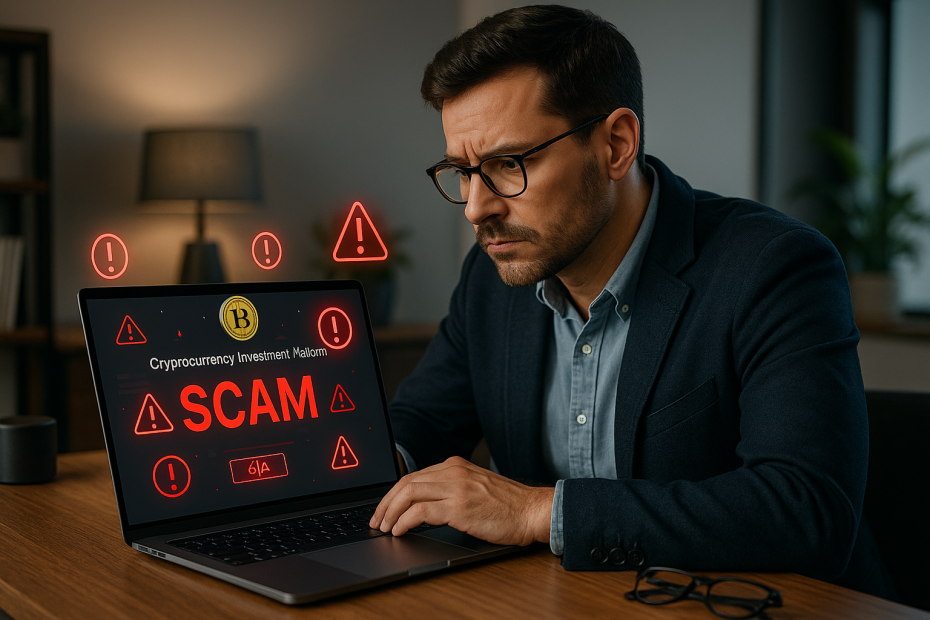Crypto Recovery Scams: How to Avoid Being Scammed Twice
If you’ve already been a victim of a crypto scam, you’re probably feeling vulnerable, frustrated — and desperate to recover your money. Unfortunately, that’s exactly what recovery scammers count on.
These schemes target victims of fraud, promising to retrieve lost crypto in exchange for upfront fees or personal information. But instead of helping, they leave victims even more financially and emotionally devastated.
Let’s break down how these recovery scams work, and what you can do to protect yourself.
What Are Crypto Recovery Scams?
Crypto recovery scams are a second wave of fraud targeting people who have already been scammed. They usually appear as:
- “Experts” who claim they can trace and recover your lost crypto for a fee
- Fake legal firms or investigators who contact you unsolicited
- Websites or forums promising fast recoveries with guaranteed results
- Impostors posing as government agencies, law enforcement, or blockchain security experts
They may even reference specific details about your original loss — stolen from hacked databases, dark web dumps, or your own complaints posted online.
How They Trick You
Recovery scammers use tactics that mimic legitimacy, such as:
- Fake success stories and fake reviews
- Logos or language that sound like law firms or cybersecurity companies
- High-pressure messages urging you to “act fast”
- Promises of guaranteed recovery or special legal access
They may ask for a “retrieval fee”, wallet access, or private keys, and once they have your trust — and your money — they vanish.
Signs It’s a Recovery Scam
Here’s how to spot the red flags:
- 💰 They ask for payment upfront
- 🚫 They guarantee results (real recovery professionals don’t)
- 🕵️ They contacted you out of nowhere
- 🌐 Their website lacks transparency or has no verifiable team
- 🎣 They ask for your private keys or seed phrases
How to Protect Yourself
- Don’t engage with unsolicited offers — legit firms don’t cold-call victims.
- Research any company or individual thoroughly — check for real reviews, company registration, and expert credentials.
- Avoid upfront fees or crypto payments — real firms offer transparent pricing, contracts, and written scopes of work.
- Talk to someone you trust — recovery scammers rely on isolation and urgency.
- Report suspicious behavior — to your local consumer protection agency or law enforcement.
What to Do If You’re Already a Victim (Again)
If you think you’ve been targeted or scammed again, act quickly:
- Stop all communication with the scammer
- Document all messages and transactions
- Report the incident to relevant authorities
- Consider speaking with a legitimate crypto recovery firm with blockchain tracing and legal capabilities — like Lost Coin Rescue
Don’t Let the Same People Scam You Twice.
It’s bad enough to be targeted once. Falling for a recovery scam adds insult to injury — and often pushes victims into deeper emotional and financial distress.
At Lost Coin Rescue, we’re not just here to trace your stolen crypto — we’re here to help you avoid the predators that come after.
⚠️ Stop. Don’t Send Another Coin Until You Talk to Us.
If someone’s promising “guaranteed” crypto recovery, it could be a scam.
Get a Free Case Review Now — We’ll help you verify and stay safe.
Worried about this broker?
If you lost money to this platform or a similar crypto investment scheme, Lost Coin Rescue can help you understand what really happened and what recovery options may exist.
No upfront “recovery fees”. We only move forward on written, agreed terms after our team reviews your case.
